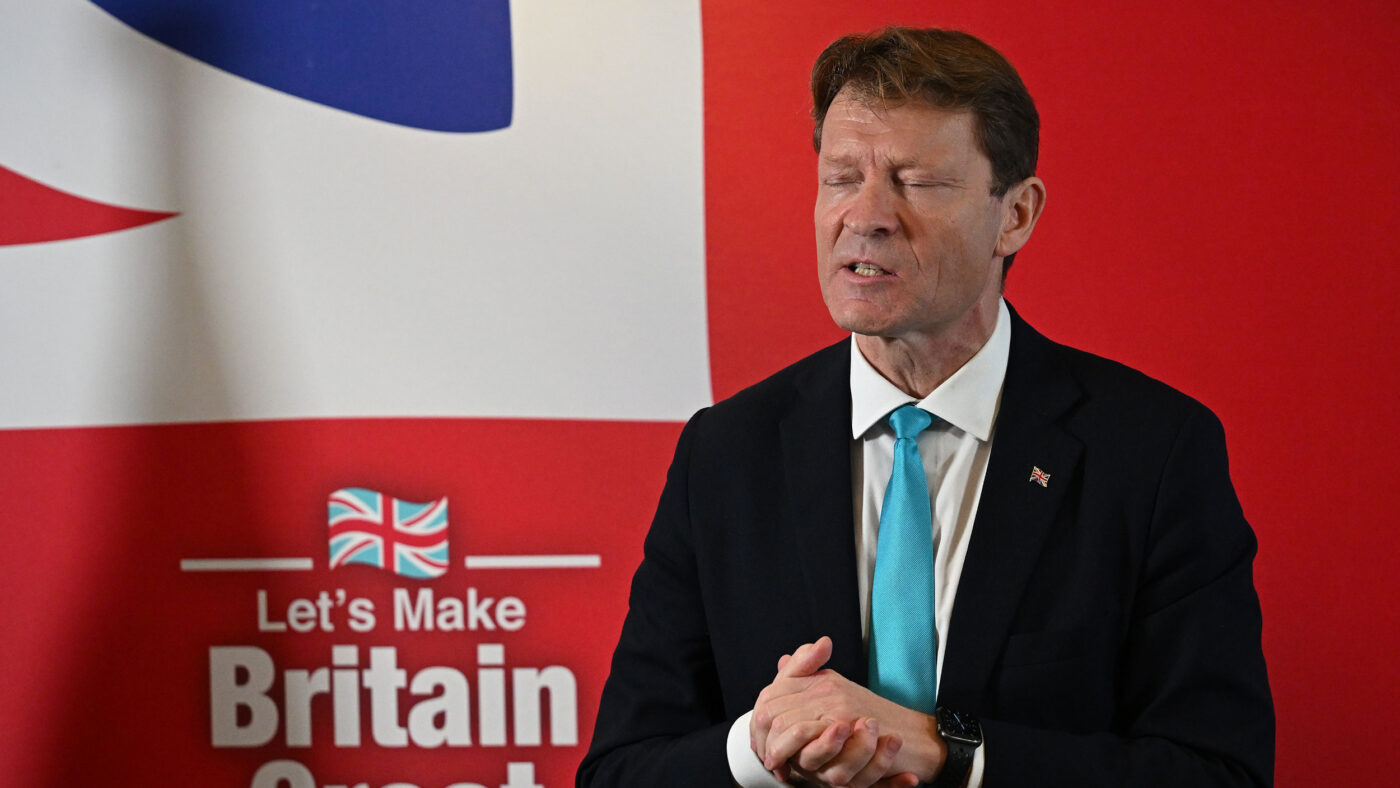Last year, Lee Anderson claimed that he had been offered ‘a lot of money’ to defect to Reform UK. One wonders whether he finally got his payday before announcing his defection this morning (and if his recent loss of the Conservative whip affected the spot price).
The bigger question, however, is how much his crossing the floor will damage the Government. The obvious point of comparison is the 2010-15 Parliament, where the defections of Douglas Carswell and Mark Reckless helped to heap pressure on David Cameron to promise a referendum on the European Union.
On the face of it, Anderson’s move seems less likely to have such drastic consequences, for a few reasons. First, there is no indication yet that he intends to follow Carswell’s precedent and trigger a by-election in his Ashfield constituency.
He is under no obligation to do so, of course. But the fact that both UKIP MPs fought and held their seats did much to emphasise the threat their party posed to the Conservatives. For now, then, Anderson’s claim to speak ‘on behalf of millions of people up and down the country’ remains so much hot air.
Second, and following from that, Reform UK is still not in the same position as was UKIP a decade ago. Whilst its polling has improved, and it recently showed itself capable of posting double-digit vote shares at the Kingswood and Wellingborough by-elections, Reform still suffers from an anaemic ground machine and scant base in local government.
UKIP, by contrast, had been building up for over a decade, was well-established in town halls, and polling in 2014 showed they were on the cusp of coming second in 100 seats at the 2015 election. Had the referendum not taken place, it would almost certainly have made a significant breakthrough at the one after that.
Finally, there is the lack of a clear ask. Nigel Farage had one key demand: hold that referendum. Reform, by contrast, reflects a much more general hostility towards the Tories; Richard Tice has previously said the Conservative Party should be ‘smashed and destroyed’. Such a posture naturally both caps and handicaps those elements inside the Tories keen to collaborate with Reform.
(It’s also worth mentioning here that Reform’s Thatcherite economic policy offering is a world away from the spendthrift, levelling-up pitch by which Boris Johnson won over the Red Wall.)
This doesn’t mean Anderson’s defection isn’t significant. For a small party, there is a big difference between having no MPs and having one – especially one as adept at generating coverage as the Member for Ashfield.
Reform will also now be eligible for Short Money, the funds provided to parties by Parliament to support their activities. Historically, UKIP made very effective use of funding from the European Parliament; with that now denied to minor parties in Britain, access to parliamentary funds is more important than ever.
It also remains to be seen whether their new MP might lead Reform to moderate Tice’s unremitting hostility towards his old party. Anderson is personally popular with many Conservatives, even if they deplore his woefully ill-judged comments about Sadiq Khan; he will have a much better handle on what sort of messages might be effective, and on which MPs (if any) might be most amendable to defecting in turn.
More difficult to assess is how much any of this will hurt the Tories at the general election. A real split on the right on top of their huge polling deficit against Labour could be fatal, as their Canadian counterparts learned in 1993.
But whilst that election has started to crop up in political coverage (you read it here first), conditions in this country remain different in crucial respects. In 1993, the Progressive Conservatives faced not one but two very powerful challenges from parties with geographically-concentrated votes in their former heartlands: Reform in Western Canada, and the Bloc Québécois in Quebec.
For now, Reform UK does not have a heartland of its own. It is thus difficult to see where it might win any seats (perhaps one reason Anderson hasn’t yet called a by-election). Taking votes off the Tories could still cost them seats under first-past-the-post, but if the damage is concentrated in the Red Wall the actual impact on seats might well be reduced, because Labour is currently expected to recapture all or nearly all of it anyway.
Given the Government’s consistently dire polling and widespread dissatisfaction on the right, one suspects that a party led by Nigel Farage would probably be making considerably more headway against the Conservatives right now than Reform UK is. Rishi Sunak then remains, for now at least, lucky in his right-wing challengers.
If Anderson can sell his new party on a change of tack – if, indeed, he has any mind to do so – then it could be another story.
Click here to subscribe to our daily briefing – the best pieces from CapX and across the web.
CapX depends on the generosity of its readers. If you value what we do, please consider making a donation.


